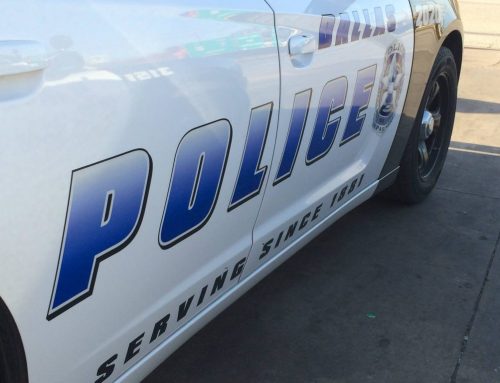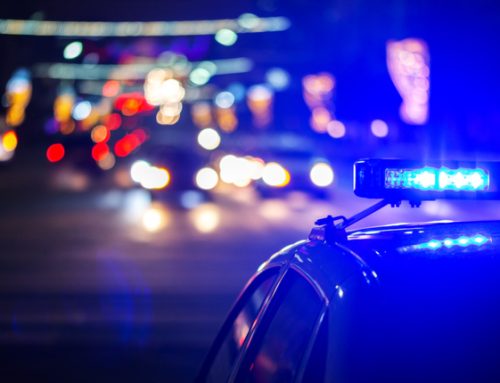Each month, the Advocate visits with Sgt. Mike Gurley and Sr. Cpl. Rick Janich of the East Dallas Storefront police station, 1327 N. Peak Street (670-5514). Two police officers and five community service workers are employed at the Storefront, which coordinates multilingual services ranging from tutoring to crime prevention. The Storefront is best-known for its bicycle patrol officers, who pedal the streets of East Dallas weekdays. The City of Dallas funds the Storefronts, but numerous volunteers and organizations provide both hours and funds to develop special programs aimed at building better relations among police officers and neighborhoods. (Editor’s Note: Sr. Cpl. Ed Vasquez, formerly with the Storefront, has transferred to an investigative job elsewhere in the department.)
Advocate: Any news on the “crack” front?
Mike: You know, we’ve got one property owner who is buying apartment complexes in a certain area in East Dallas, and he is chasing the dealers out. Prostitutes, drugs, whatever, they’re gone. The day he purchases the complex, he says: Give me your keys. The other day, he went in and found something like 30 bags of crack in one apartment.
Advocate: You mean, he just takes all of this action by himself? I thought it wasn’t a good idea to confront drug dealers.
Rick: He’s cautious, but he just takes it by the horns and does whatever is necessary. This guy owns the property, and he has the legal right to check out what he owns. Of course, it might have been good to take someone with him.
Mike: We’ve cautioned him quite often to be careful. But he’s known to be fair and upfront with everyone, so there haven’t been any problems.
Advocate: Why aren’t the drug dealers putting up a fight as their operations are being disrupted?
Mike: What are they going to do? They’re not going to draw attention to themselves. You would expect these people, if they’re making all of this money (from selling drugs), to be driving nice cars and all of that, but they usually don’t. They just blend in. They’re low-key dealers.
It’s hard for us to get into the apartment complexes – people don’t always want to talk with us, and it’s pretty hard to slip in without someone seeing us.
The dealers are more likely to move quietly than confront us. There’s nothing to be gained by confronting us. And because they’ve got a pretty tight-knit organization, it’s tough for us or narcotics (officers) to get much information on them. Who’s going to talk?
Advocate: How many “crack houses” are there in East Dallas and Lakewood?
Mike: It’s pretty hard to know. One house might be a gang house, for example, and people might think it’s a crack house.
Rick: One house might be in a nice residential neighborhood with good cover, so there’s no way to know.
Mike: If we knew how many there were, we could probably do more about them. I know there are enough drugs around that if we put one dealer out of business, we haven’t substantially limited the flow of drugs. We just try to deal with one problem at a time; we can’t take care of it all at once. But it’s hard, impossible really, to quantify.
Advocate: I’ve often wondered whether the crack problem today is just an updated version of the problems during Prohibition with alcohol. You know, people getting shot and arrested over something they can’t have.
Rick: I think crack today is more widespread than alcohol was during Prohibition. I don’t think the violence was as widespread then as we have now. Sometimes, it really seems like the violence is out of control. The availability of guns, people watching movies, drugs; it can be caused by all of those things.
Mike: It may be a combination. Gang violence is up, drugs are prevalent. It’s almost as if violence has become a trend in and of itself. We may just be at a crossroads where everything has come together. If it was one thing, we could deal with that, but…
Rick: You can’t legalize drugs, that won’t solve the problem.
Mike: There’s nothing positive about drugs. Now, I’m not the first guy to say that, but it’s true; drugs don’t get you anywhere you aren’t already. Violence isn’t the answer to the problem, and gangs are not productive organizations.
One thing we’ve been working on, that is new to the department, is the Neighborhood Assistance Unit. It’s made up of the Storefronts, and two 2-man units walking beats. Their job is to get to know their beats, to work in and through the community to solve problems. We can pool our resources and pool our concepts to grow from what we have started. What we learn here in East Dallas doesn’t just have to stay here.
We can’t just sit back and say: Let these kids grow up, and then they’ll learn. We still have to fight the symptoms. If we don’t address some of these social problems, they’ll become police problems. We’ve got our work cut out for us.





